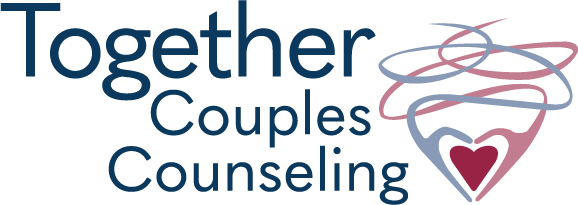“We distrust our heart too much, and our head not enough.” -Joseph Roux
Love…that’s why we are in a relationship, right? Because we’re in love.
We love the way they smile, their playful spirit, the way they connect with people. We love them for their steadfastness, for their calm, for their intelligence and for the electricity we feel when with them.
Poets have written about how the heart leads us to finding love for centuries.
Yet the couples who come to my office are often disconnected from the love in their hearts, feeling betrayed by the very powerful feelings that led them to one another, wondering how they could have been so fooled.
“Where is fancy bred? In the heart or in the head?” – Willy Wonka
If we “fancy” our spouses from the heart, our discontent, and by default our relationship itself, is often ruled by our heads.
While our brains are wired for connection, they are also wired for survival.
Which means we go into survival mode at times, shifting us from the part of our brain that is wired for connection into the part that is wired for protection.
When we feel safe, we reach out to our partners. We cuddle up on the couch, reach to hold a hand, offer a warm smile, ask for sex, make a nice meal to share….
When we are in protective or reactive mode, feeing emotionally unsafe, disconnected or distraught you might find yourself saying, “I was triggered”… a common buzz phrase these days.
Understanding Emotional Triggers in Relationships
When we are triggered, we should not trust our head. It is no longer interested in connecting, loving, or being loved. It’s only mission is to survive, which may look like – proving you are right, controlling the other person or the situation, screaming and yelling, withdrawing, or retaliating.
But shouldn’t you trust your head? It’s logical, rational and thinks about what’s right or wrong. Your head got you through graduate school and runs your business, gets you the promotions at work, helping you be the success you are today!
This is true. AND, our brains are the emotional center of our very being.
We are emotional beings who think, not thinking beings who sometimes feel
And the brain is always wearing “history colored glasses”.
History can be as close as yesterday or as far back as your childhood.
When you have an automatic, negative response to something, this often indicates a hypersensitivity that’s referred to as “getting your buttons pushed.” Many times, these sensitivities develop from hurtful interactions that have occurred in the relationship and have not been successfully addressed.
Or, these sensitivities may have developed due to hurtful childhood experiences, such as repeatedly being criticized, rejected or controlled. For example, if your parents were very controlling, when someone tells you to do something you may resist, dig your heels in, respond rigidly—often subconsciously.
History is at work here and most times, our buttons are created by both upsets from the present relationship and from the family you grew up in. It’s important to look at both.
Answer the following two sets of questions, true or false, to discover how well you manage your buttons being pushed.
Set 1
- When my buttons get pushed, I tend to shut down and withdraw.
- When someone hurts me—even when I know it was unintentional—I lash out at them or blame myself.
- I hate it when someone tells me I’m “too sensitive.”
- When someone says or does something that triggers the feelings connected to an old emotional pain, it takes me a long time to let go of it and feel centered again. I often carry resentment.
- Sometimes I have no idea why I do what I do—I just can’t control myself.
- Once someone pushes my buttons, that’s it—my wall goes up and stays up. I feel like a powerless little kid.
Set 2
- When old feelings are triggered by something in the present, I take a deep breath, acknowledge that old feelings have been activated, get myself to a safe and comfortable environment and seek the support I need.
- Rather than feeling victimized and blaming someone for pushing my buttons, I, again, take a deep breath, and then take an honest look at myself to see what I can learn from the situation.
- I’ve worked to uncover old, painful issues so that I can release what was triggered and not feel at the mercy of my emotional response.
- When I feel triggered, it often has nothing to do with the person who pushed my buttons.
- I’m familiar with my most common “buttons”; I recognize them more quickly now and am less reactive.
- When my buttons do get pushed now, I am able to see the unresolved issues needing my attention.
- I feel like an empowered adult when I can courageously look at my emotional triggers and work through them.
If you answered true more often in Set 1 and false more often in Set 2, it may be wreaking havoc on your relationship. It would serve you well to learn how to deal more effectively when your buttons get pushed and how to release their charge.
Knowing which part of you is running the show is the first essential skill for having a healthy, lasting, loving relationships.
This may sound simple, but it’s not necessarily easy.
Most importantly, it is your responsibility, not your partners, to manage your emotions and behaviors when you feel triggered.
When we are able to shift out of the reactive part of our brain into the part that wants to connect and love, it is then our hearts and our minds are aligned. And our relationships will be better for it. If you’re struggling to make this shift, visit our individual counseling page to learn more about how therapy can support you.
Author’s content used under license, © Claire Communications




